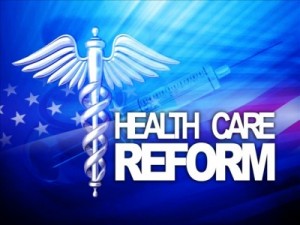

In a recent report published last month by the Urban Institute and Robert Johnson Foundation states that if the Patient Protection and Affordable Care Act (ACA) is enacted, it would reduce the number of nonelderly uninsured Americans from 50 million to 26 million. However, if the Individual Mandate clause of the PPACA is repealed, the number of uninsured Americans will rise between 40 and 42 million. The report also states that ACA would increase private insurance by 7 million people and if the mandate were eliminated from law as enacted, private coverage would decrease by 11 million.
The infographic below by hCentive shows the number of uninsured elderly projected to rise without the individual mandate:

Source:hCentive
The results from this report were produced utilizing the Urban Institute’s Health Insurance Policy Simulation Model (HIPSM) that simulates the decisions of business and individuals in response to policy changes such as Medicaid expansions, new health insurance options, subsidies for the purhcase of health insurance, etc. This model helps provide estimates of changes in government and private spending, premium rates, and health insurance coverage as a result from specific reforms.
Although the reform is cut by more than half , the government would only spend 3 to 8% less on acute care for the nonelderly. The reduction in uninsured care paid by taxpayers and healthcare provdiers would also be smaller without the mandate.
Full implementation of the ACA with a mandate increases private insurance by 7.4 million nonelderly enrollees, from 164.9 million without reform to 172.3. The following table provides a summary of how distribution of health insurance coverage would change under healthcare reform (CLICK ON TABLE FOR LARGER VIEW):
The details of this report titled, Eliminating the Individual Mandate: Effects on Premiums, Coverage, and Uncompensated Care by Matthew Buettgens and Caitlin Caroll is available here.
About the Urban Institute
The Urban Institute is a nonprofit, nonpartisan policy research and educational organization that examines the social, economic and governance problems facing the nation. For more information, visit www.urban.org.
About the Robert Wood Johnson Foundation
The Robert Wood Johnson Foundation focuses on the pressing health and health care issues facing our country. As the nation’s largest philanthropy devoted exclusively to improving the health and health care of all Americans, the Foundation works with a diverse group of organizations and individuals to identify solutions and achieve comprehensive, meaningful and timely change. For nearly 40 years the Foundation has brought experience, commitment and a rigorous, balanced approach to the problems that affect the health and health care of those it serves. When it comes to helping Americans lead healthy lives and get the care they need, the Foundation expects to make a difference in your lifetime. For more information, visit www.rwjf.org.









